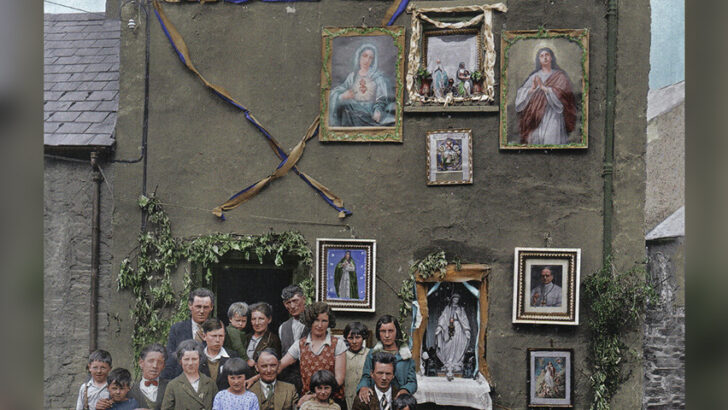A Nation is Born: Ireland in Colour 1923-1938, edited by Michael B. Barry and John O’Byrne (Gill books, €26.99 / £25.99)
The title of this book is a complete misnomer. But then that is the sort of thing that happens when a complex subject is popularised for Christmastime consumption.
Ireland in 1923 did not see ‘The birth of a nation’, but the founding of a state. The old song by Thomas Davis that everyone one once knew from the popular Christian Brothers, which were then in all the schools, was that “Ireland long a province, be a nation once again”.
The whole argument for Irish independence was erected around the idea that Ireland was an identifiable nation since Celtic times and at its people were asserting a long suppressed right.
Constitution
That too would have been the claim of the new constitution introduced to the people by Mr De Valera: a constitution now under fire for its old-fashioned ideas about the role of religion and women in the life of the country.
But on the cover of this book De Valera is inspecting the colourful Blue Hussars, a unit later abolished as not in keeping with modern democratic aspiration. They gave a sense of dash and vigour to state public occasions.
Actually the Irish Army dress uniforms were copied not from Britain or the United States, but from Catholic Austria in the days of the old Austro-Hungarian empire. (In photographs of the Eucharistic Congress in 1932, not included in this book, senior officers can be seen at the Pro-Cathedral wearing them.)
This is not a narrative book, but a picture album which illustrates a wide variety of events. As a memoir of people and happenings from those interwar years it will have a great interest for many readers.
Revisionism
This writer, however, has to maintain his own long held view that colourisation is a species of ‘revisionism’: it aims to make what was in reality a grey and shabby past into an era more vividly alive.
But a reviewer has to recognise that his own views having been stated, they must to be balanced by a recognition of the stated aims of the talented editors, especially Michael Barry, a writer of great industry with high aims of his own.


 Peter Costello
Peter Costello Waterford family celebrate the Eucharistic Congress in 1932.
Waterford family celebrate the Eucharistic Congress in 1932. 